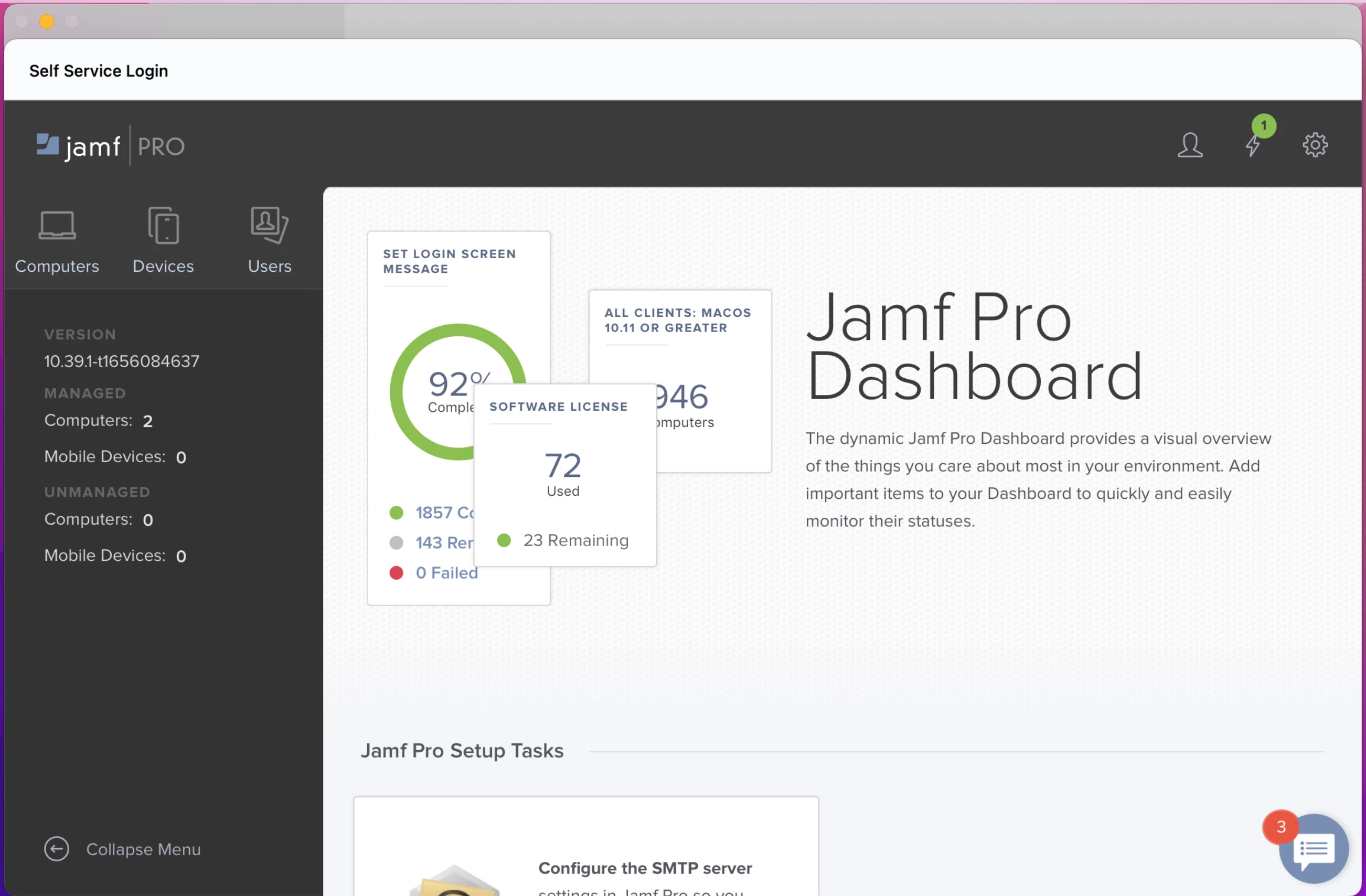I wanted to see if anyone else has or is experiencing this, we have a jamf cloud hosted instance. So far jamf support has been unable to determine the cause of the issue. When signing into Self Service, which uses Okta for us, instead of going into Self Service and seeing your available applications to you, it opens a webkit window of our jamf pro dashboard inside the Self Service app, if you don't have login rights to our console then the user gets access denied. This is a screen grab from our dev enviroment, where the issue started happening first and then "magically" started occurring on our production instance which is on a slightly older version of jamf. Of our identity team that manages Okta says they have made no changes. I have tried turning SSO on and off for the instance, turning off SSO for Self Service and turning that back on, but it's still the same experience. Both instances were working perfectly fine up until about week ago.






